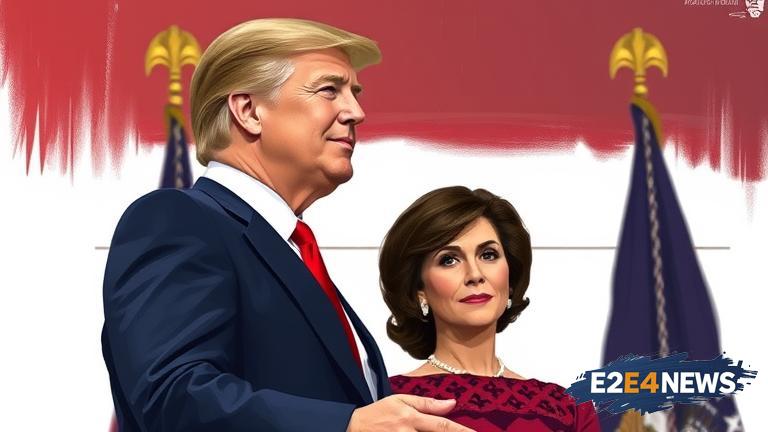The question of whether a president’s wife can sue her husband has sparked intense debate and curiosity. In recent times, the role of the First Lady has evolved, and their influence on the presidency has become more pronounced. However, this increased visibility has also led to a rise in scrutiny and criticism. The issue at hand is whether a First Lady can take legal action against her spouse, who also happens to be the head of state. This is a complex matter that raises several questions about marital law, presidential immunity, and the separation of powers. In most countries, the president is granted immunity from prosecution, which means they cannot be sued or prosecuted while in office. But does this immunity extend to their personal relationships, including their marriage? The answer is not straightforward. Some argue that the president’s immunity is absolute and covers all aspects of their life, including their personal relationships. Others contend that this immunity only applies to official acts and not personal matters. The concept of marital law is also relevant in this context. In many jurisdictions, spouses have certain rights and obligations towards each other, including the right to sue for divorce, separation, or other marital disputes. However, when one of the spouses is the president, the situation becomes more complicated. The president’s position and influence can create a power imbalance in the relationship, making it difficult for the First Lady to navigate the legal system. Furthermore, the president’s immunity can make it challenging for the First Lady to seek legal recourse, even if she has a legitimate claim. The media and the public often scrutinize the First Lady’s actions, and any legal dispute between the couple can become a sensationalized news story. This can put pressure on the First Lady to keep the dispute private, rather than seeking legal action. In addition, the First Lady’s role is often seen as a symbol of national unity and stability. If she were to sue her husband, it could be perceived as a sign of instability and weakness in the presidency. The potential consequences of a First Lady suing her husband are far-reaching and can have significant implications for the country. It could lead to a constitutional crisis, damage the president’s reputation, and undermine the stability of the government. On the other hand, if the First Lady is denied the right to sue her husband, it could be seen as a violation of her human rights and a perpetuation of gender inequality. The issue is further complicated by the fact that the president’s immunity is not always absolute. In some cases, the president can be sued or prosecuted for certain offenses, such as treason or corruption. This raises the question of whether a First Lady can sue her husband for similar offenses. The legal precedent for a First Lady suing her husband is limited, and there are few examples of such cases. However, there have been instances where the president’s spouse has taken legal action against him, albeit in different contexts. For example, in the United States, the wife of a former president sued him for divorce, citing irreconcilable differences. The case was settled out of court, but it highlights the complexities of marital law and presidential immunity. In conclusion, the question of whether a president’s wife can sue her husband is a complex and multifaceted issue. It raises important questions about marital law, presidential immunity, and the separation of powers. While there is no straightforward answer, it is clear that the issue has significant implications for the presidency, the First Lady, and the country as a whole. The debate surrounding this issue is likely to continue, and it will be interesting to see how the legal system navigates this complex and sensitive topic. As the role of the First Lady continues to evolve, it is essential to consider the legal implications of their position and the potential consequences of any legal disputes that may arise. Ultimately, the issue of whether a president’s wife can sue her husband highlights the need for clarity and consistency in the application of marital law and presidential immunity. It also underscores the importance of protecting the rights of all individuals, including those in positions of power and influence.





